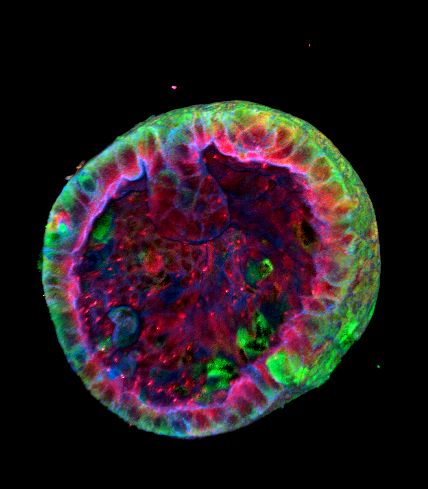
Anne Rios, Princess Máxima Center
Drug
Kidney patients who undergo a transplant are at risk of contracting a viral infection. Unfortunately, at the moment there is still no effective treatment for this. ‘In the lab, we can give a mini kidney a viral infection which some patients contract following a kidney transplant,’ says Professor of Experimental Nephrology at UMC Utrecht, Marianne Verhaar. “We can then establish whether this infection can be cured using a specific drug. And we can also use mini kidneys created from the tissue of a patient with kidney cancer to study cancer.”
Collaboration
Verhaar explains that she collaborates with medics, researchers and technical experts at a single location in Utrecht: the Regenerative Medicine Centre Utrecht. “Collaborating in this way has made a huge difference to our research. We hope that, together, we can improve treatments for kidney patients. In the long term, we hope to be able to use mini kidneys to create a real, functioning kidney – a tailor-made kidney – too. But that’s still a long way.”
Researchers in the Princess Máxima Center also develop the technique to apply in case of a Wilm's tumor. 'Hopefully we can prescribe targeted therapy in the future and prevent servere side effects of the treatment', says Jarno Drost, principal investigator in the Princess Máxima Center.

